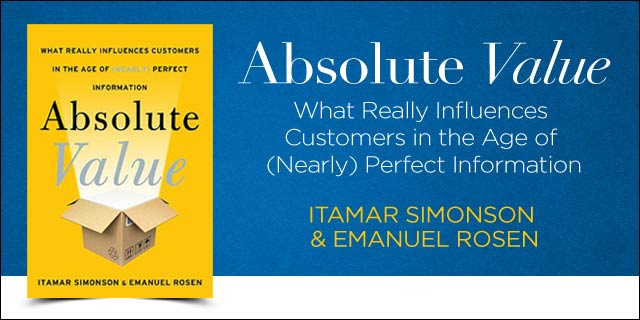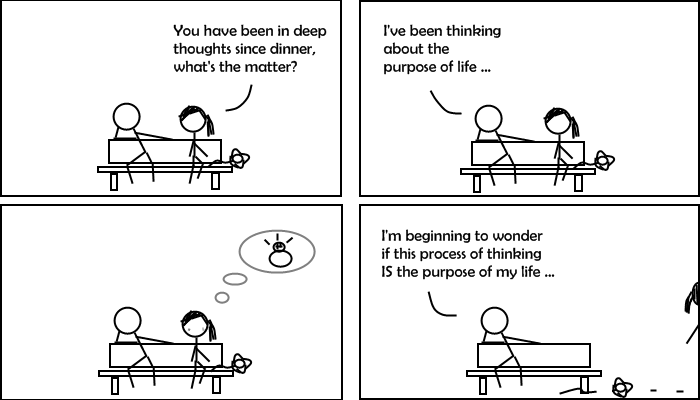Warning. Great reviews are killing brand loyalty.
Yesterday I got home from work and expected to hear a welcoming shout from my wife. Instead I found an isolated piece of paper on the kitchen table and a house that was eerily empty.
“Honey, I have decided to leave you. I have found someone else that is simply a better match. I love you and you have made me happy for years. But I stumbled onto a website that predicts matches between people based on reviews from previous partners and friends, can you believe that ?
Anyway, I decided to try it out for fun. To my great surprise, it turns out I will be 34% happier with Jason than with you. And I don’t even know him ! For years, I was very happy with you knowing what you are and give me. Now I realize I was also loyal because I was not aware what else I could have. Now I do. I thank you for all the years together and your loyalty, based on the same misconception that I had. I don’t feel bad because I am convinced you will be able to find a better match as well !
Good luck, love, Katherine.
The end of brand loyalty. Fortunately for me, Katherine did not write this letter. Nor does the website that she refers to exist. At least, not exactly. There are sites that discuss ex-partners in less glorious manners. But why – apart from a general care for my wellbeing – should you be interested in my love life ?
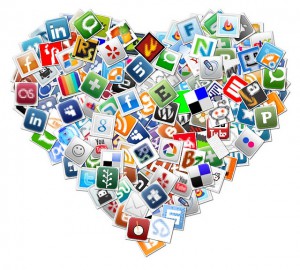 Well, you shouldn’t. But there are thousands of websites and apps that make matches between people and products and services using reviews. You use them, probably daily. And if you replace my personal relationship with that between a brand and a customer than the story implies that word of mouth is unintentionally but unequivocally sounding the bell for the end of brand loyalty. That, in essence, is the message of an important marketing book called ‘Absolute Value’.
Well, you shouldn’t. But there are thousands of websites and apps that make matches between people and products and services using reviews. You use them, probably daily. And if you replace my personal relationship with that between a brand and a customer than the story implies that word of mouth is unintentionally but unequivocally sounding the bell for the end of brand loyalty. That, in essence, is the message of an important marketing book called ‘Absolute Value’.
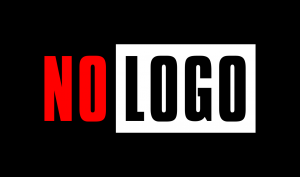 Although death bells are constantly rung for marketing phenomena like the brand itself, advertising, Facebook and email marketing, the consequences of the demise of brand loyalty are so massive that you just might want to understand this one.
Although death bells are constantly rung for marketing phenomena like the brand itself, advertising, Facebook and email marketing, the consequences of the demise of brand loyalty are so massive that you just might want to understand this one.
For a very long time we have made our purchasing decisions based on our previous product experiences. For an equally long time, companies were able to predict future revenues as a result. All that time, it has been very difficult for upstarts to capture market share because they would need to break rusty habits or ‘loyalty’ of customers and spend millions on creating awareness. If this would all change:
- We would have no feeling for a brand when we contemplate a purchase
- Companies could not predict ANY retention of clients.
- Startups could conquer huge markets overnight, competing on actual value, not awareness.
An important book. A book that can build a case for such a shift is an important book. So I decided to review it and add my own perspective to it. So what you’ll find below is a mix of the book’s opinions and my own. I strongly recommend reading the book to get the full picture.
We’re only as good as our latest product. I don’t believe in brand at all.
– James Dyson
What’s driving the change ? Emanuel Rosen and Itamar Simonson describe a few key drivers that are changing customer behaviour and in turn will transform the marketing landscape. Summarized in my words:
Driver 1: Reviews predict your match with products ever more perfectly.
Although the bulk of Word of Mouth is still an offline phenomenon (as hilariously symbolized by the movie ‘The Joneses’, below), reviews have stolen the crown when it gets to using people’s opinions as a deliberate step in a buying process. And reviews and expert opinions have found the jar with steroids:
- The fast increasing volume and diversity of reviews will create access to nearly perfect information about a product.
- Review tools are fast becoming better at predicting how YOU will feel about a products’performance if you buy it.
- In contrast, brands have the tendency to mislead or seduce you. Which means – by nature- they suck at predicting whether you will like their product.
Driver 1 Reviewed…
 Volume of reviews yes, diversity a little. quality no. There are masses of people who do not share their opinions yet, which undoubtedly creates significant bias. But I am most disappointed in how well current review platforms and tools predict my personal satisfaction with a product, considering Amazon started the race to predict my likings 15 years ago. An average number of stars punched in by hasty users is simply not going to cut it.
Volume of reviews yes, diversity a little. quality no. There are masses of people who do not share their opinions yet, which undoubtedly creates significant bias. But I am most disappointed in how well current review platforms and tools predict my personal satisfaction with a product, considering Amazon started the race to predict my likings 15 years ago. An average number of stars punched in by hasty users is simply not going to cut it.
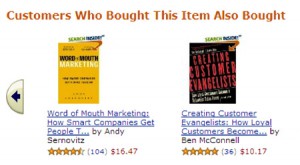 But there is no denying that the movement to improve the ‘Personal Predictive Power’ of reviews is getting much stronger. It’s simply a numbers game: you leave behind a large amount of data connected to your preferences. Combine them with big data from other customers and you’re off to a good start. And now that companies are starting to make money in the review business it will progress much faster. The next big opportunity is to help customers create much better reviews.
But there is no denying that the movement to improve the ‘Personal Predictive Power’ of reviews is getting much stronger. It’s simply a numbers game: you leave behind a large amount of data connected to your preferences. Combine them with big data from other customers and you’re off to a good start. And now that companies are starting to make money in the review business it will progress much faster. The next big opportunity is to help customers create much better reviews.
Driver 2: Information access makes all of us more sophisticated buyers
So the information is out there but are we using it to make decisions ? Most marketing is based on the idea that at a certain point people ‘will be in the market’. And that marketers are then in a good position to influence their buying decisions. With information, advertising.
Couch Tracking (not surfing) ‘Absolute Value’ shows how sophisticated ‘prosumers’ are ‘couch tracking’ (categories of) products through expert reviews, user opinions, pricing developments. These people are not necessarily ‘in the market’ to buy in the classic sense but are somewhere in the buying cycle. When they buy, their decision has pretty much been made and there is very little space for influence by the brand.
The Zero Moment of Truth. And even the masses of normal consumers are joining the game, without much conscious effort. Nearly everyone is checking reviews before buying. Google calls this the ‘Zero Moment of Truth’ (video below). And if we see friends discussing their latest acquisitions in our timelines or are automatically offered reviews in online shops about products that are not on our immediate shopping lists we are empowering ourselves with information just like the ‘prosumers’.
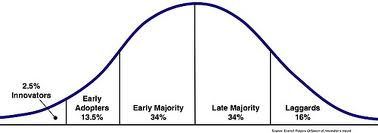 As a result, the authors believe that people will no longer behave according to the boxes that Everett Rogers once put them in. Because the information is available to everyone, more people will behave like the pioneers and early adopters. And can make buying decisions quicker, with more certainty.
As a result, the authors believe that people will no longer behave according to the boxes that Everett Rogers once put them in. Because the information is available to everyone, more people will behave like the pioneers and early adopters. And can make buying decisions quicker, with more certainty.
Driver 2 Reviewed…
On the surface, there is a lot going against this trend. People want to make as little decisions as possible, love saving time and freeze when faced with information overload. But technology is simply making it too easy to use the information in an effective way for people not to use it. If you Google a product the first reviews show up in the search results without another click needed.
 I recently connected with a promising Berlin startup called Triprebel. They allow you to book an hotel room and then they will check whether a better price or even a better hotel becomes available and then rebook for you. A great example of facilitated couch tracking that will turn everyone into a prosumer.
I recently connected with a promising Berlin startup called Triprebel. They allow you to book an hotel room and then they will check whether a better price or even a better hotel becomes available and then rebook for you. A great example of facilitated couch tracking that will turn everyone into a prosumer.
At Buzzer, we started turning the early or late majority into pioneers a decade ago, by allowing thousands of ‘ordinary’ consumers to try out and review products ahead of others. Nowadays, ever more tools and apps are proactively bringing you information about products. At the perfect time. If your smartphone warns you there is a better match on the lower shelf, you will grab for the unknown…
Trend 3: Emotional, irrational buying will decline.
We are and will always be emotional animals. As a result, we are very irrational buyers. Who else can explain droves of people switching to the newest iPhone while offering very little new value ? Brands use this to their great advantage, creating emotional landscapes for you to dwell in on a strategic level and employing all kinds of persuasion techniques as tactical tools to keep us from making an objective buying decision.
The ‘Facebook Phone’. So even if reviews are offering much better information and we are ready to use that information, won’t the emotional appeal of brands and sophisticated persuasion techniques counterbalance that ? The authors offer a compelling argument why access to nearly perfect information will change this. A great example in the book is HTC’s 2013 launch of its ‘First’ smartphone and positioning it as ‘The Facebook Phone’. It is obvious HTC is appealing to the emotion of ‘belonging’ and being part of the Facebook community. Without the phone you just might lose your friends ! It is also claiming ‘relative value': it is more a Facebook phone than another smartphone.
But people do not vent their emotional buying kicks in the reviews and opinions that we access. Because they are less aware of them and/or ashamed of them. In our reading of reviews, we will be helped to zoom in on the rational aspects of judging products. In parallel, reviews and expert comparisons will reveal that pretty much all smartphones offer enough Facebook connectivity to call any smartphone a ‘Facebook phone’.
Absolute value will win. By becoming more rational buyers, the ‘Absolute Value’ of products and services – servicing real needs of people – will gain ground, as compared to the relative value of – for instance – a product that states it was ‘Made in Germany’ or ‘The Facebook Phone’.
Driver 3 Reviewed…
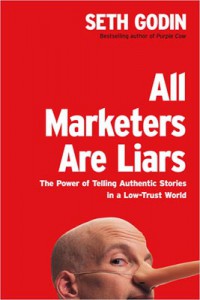 The much greater transparency of the world we live in and a yearning for greater integrity and honesty will drive people to look for real (absolute) value and less bullshit. So I agree with the book where it claims that the efforts of brands to deceive or target people’s emotional weaknesses will lose impact.
The much greater transparency of the world we live in and a yearning for greater integrity and honesty will drive people to look for real (absolute) value and less bullshit. So I agree with the book where it claims that the efforts of brands to deceive or target people’s emotional weaknesses will lose impact.
But ever since reading Seth Godin’s All Marketers Are Liars, I have been convinced that the emotional or non-functional side of products is just as important as the hard features. This is not a weakness in people, it is part of our nature and constitutes ‘hard’ value, just like features and product performance. Enter storytelling. People simply love good stories. They add real value to their lives, not fictional value. My oldest daughter likes One Direction’s music better because of all the stories around them. No review can change that. Unfortunately. But even less emotional products like Dyson’s vacuum cleaners benefit from stories and emotional aspects. The great inventor’s tale, like Steve Jobs for Apple. The design statement beyond the functional.
Reviews currently do not offer much space nor opportunity to transfer our emotional likings. But who says that people’s verdicts (i.e. the number of stars) are not already ‘tainted’ by our soft side ? I suspect that people’s opinions on technical aspects are influenced by their general feeling and that the emotional benefits of products and services will always find their way into our review-driven world. We just need to find a way to give them a proper place like their own number of stars ; )
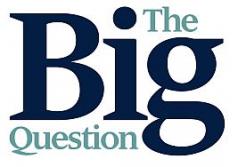 So will these Drivers change the face of marketing & what should you do about it ?
So will these Drivers change the face of marketing & what should you do about it ?
Of course marketing will change forever. And it should. If people can and want to use nearly perfect information to make buying decisions and become less susceptible to all kinds of persuasion you bet we will become less loyal to brands. Because we simply don’t have to be. And since gazillions of euros, dollars and yens are spent by brands to influence us, mak us loyal and make the world less transparent, comparable, we’re in for a big shift.
Not that this is a new revolution. I got to know Emanuel personally years ago when we were both pioneering in the Wonderful World of Word of Mouth. He wrote a book about word of mouth, I created a company that helped bring word of mouth to the marketing forefront. Since those days, the world has become ever more review-dependent. We are both guilty for our role in that ; )
So what now ? The book offers a really rich description of the consequences of these drivers, using a framework they call ‘The Influence Mix’. People’s buying decisions are influenced by ‘P’ – their own preferences, ‘O’ – other people and M – marketers or the brand. ‘Absolute Value’ in essence states that ‘O’ is becoming more important and what you should do about it. I encourage you to buy the book and delve in.
 Here is my personal and simplified marketers ‘To Do’ in the age of nearly perfect information:
Here is my personal and simplified marketers ‘To Do’ in the age of nearly perfect information:
Create more buzzable products – If people no longer automatically buy from brands they know and instead follow reviews, you better make sure you shine in those. And the best way to get more stars and a  more convincing recommendation is to make a significant difference somewhere in your product experience. In other words: you need to be Buzzable: remarkable enough to talk about. Check the rest of my website for more inspiration on how to increase your buzzability ; ) Not surprisingly, larger corporates are starting to recognize the urgency of this and have responded by buying into innovation, such as Unilever and yes, even Apple.
more convincing recommendation is to make a significant difference somewhere in your product experience. In other words: you need to be Buzzable: remarkable enough to talk about. Check the rest of my website for more inspiration on how to increase your buzzability ; ) Not surprisingly, larger corporates are starting to recognize the urgency of this and have responded by buying into innovation, such as Unilever and yes, even Apple.
Follow the Review – Brands used to spend tons on market research and then millions on driving home a message about what the product does and for whom it is meant to be. Now I would strongly suggest you ‘follow the review’ in both areas:
- R&D 2.0: create products based on ‘review insights’. There is a very little known but highly successful company called C&A Marketing. They check what people miss in products by tracking Amazon reviews. Then they create products that address these needs. Simple and incredibly effective. Read this great Fastcompany article about them.
- Let your marketing (message) follow the word of mouth. Want to have effective marketing ? Spot what people are valuing in your product and amplify. By making sure people can see these stories and by giving the features valued most central stage in your own messaging. Do not try to convince your product is something else and DO NOT create ads with ‘recommendations from real users’. They suck. While you’re at it, create a Word of Mouth Officer.
Promote & Live Your Purpose ! Reviews are important but they are just part of the story. You should keep on telling your own story. But not just any story. Not a story that is the ideal version of what your product or company is not. The story of what you are trying to do, to achieve. If there is one thing people look for even more than for a well-informed buying decision, it is inspiration, leadership, being surprised, enriched.
Your customers should experience your purpose in such an extreme, emotional way that they will have no choice but to talk about it. If you align Purpose, Product & Promotion well, the impact will counterbalance any negative effect of diminishing customer loyalty.
Lastly, an entrepreneurial heads-up. Already a fast-growing sector, reviews will become a huge industry. Companies will be specializing in every aspect of this field, facilitating you get more reviews to developing matchmaking technologies to helping consumers create better reviews. Have fun.
Willem










